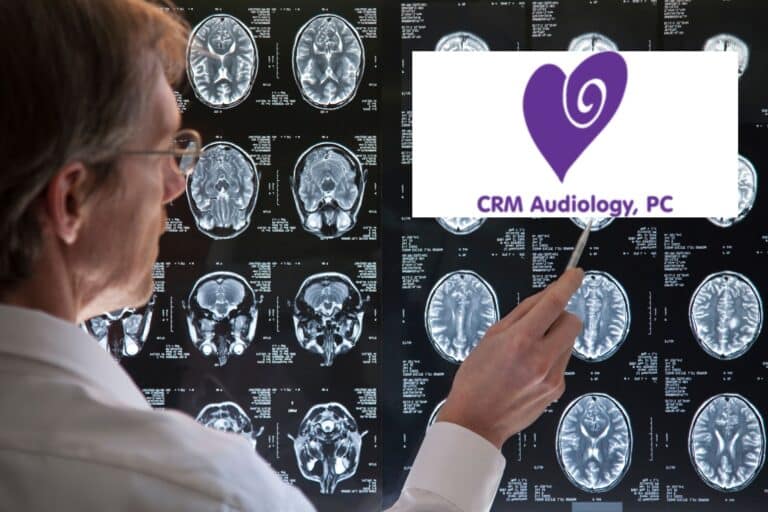As we age, hearing and vision loss become more common, but their impacts extend beyond difficulty seeing or hearing—they significantly increase the risk of dementia. A recent report by an international commission on dementia prevention found that adults over 65 with vision loss face nearly a 50% greater risk of developing dementia. The good news? Correcting these sensory impairments can dramatically reduce that risk.
Hearing loss, another sensory impairment long linked to dementia, also ranks among the commission’s 14 modifiable risk factors. Together, these findings highlight the importance of addressing sensory loss as a vital part of dementia prevention. Here’s what we know about how sensory impairments contribute to cognitive decline and what you can do to protect your brain health.
How Sensory Loss Contributes to Dementia
Reduced Brain Stimulation
Sensory impairments mean less information is sent to the brain. According to Dr. Gill Livingston, professor of psychiatry at University College London, this lack of stimulation can lead to brain atrophy, as brain tissue follows the principle of “use it or lose it.”
Hearing loss may be particularly problematic because the brain’s auditory processing region is close to areas most affected by Alzheimer’s disease. Visual information engages other parts of the brain, but its processing also activates multiple regions. Without consistent input, these areas can deteriorate more rapidly, cascading into other cognitive declines.
Social Isolation
Sensory loss often leads to social withdrawal, another known risk factor for dementia. Dr. Natalie Phillips, professor of psychology at Concordia University, explains that vision loss might discourage people from attending social events, while hearing loss may leave them feeling isolated in a crowded room. Loneliness, in turn, can physically alter the brain, exacerbating cognitive decline.
Increased Cognitive Load
Struggling to interpret blurry visuals or unclear sounds demands more mental energy. For those in the early stages of dementia, this added burden can accelerate symptoms by depleting resources needed for everyday memory and cognition.
The Importance of Treating Sensory Loss
Addressing hearing and vision loss isn’t just about improving sensory function—it also reduces the risk of cognitive decline. Here’s how treating these impairments can make a difference:
Vision Loss and Dementia Risk
Studies show that age-related vision problems like cataracts, macular degeneration, and diabetic retinopathy are associated with higher dementia risks. The degree of vision impairment often correlates with the level of risk.
However, treating vision problems can significantly lower dementia risk. For example, cataract surgery reduces dementia risk by about 30%. Correcting common issues like nearsightedness or farsightedness with glasses also reduces risk, as uncorrected visual impairments are particularly detrimental.
Hearing Loss and Dementia Risk
Hearing loss is another major contributor, increasing dementia risk by 37%. The risk rises with the severity of the hearing loss, making early intervention critical.
Approximately 63% of adults over 70 experience some form of hearing loss, often without realizing its impact. Hearing aids have proven to mitigate this risk; studies show they reduce the chance of cognitive decline by nearly 20%. Clinical trials also reveal that wearing hearing aids slows cognitive decline in high-risk individuals.
Steps to Protect Your Brain Health
1. Get Tested
- Vision: Schedule an annual dilated eye exam with an ophthalmologist.
- Hearing: Visit an audiologist or ear, nose, and throat specialist. Alternatively, use at-home hearing test apps like Mimi for initial screening.
2. Address Impairments Promptly
- Vision: Many conditions, such as cataracts, can be corrected with quick, noninvasive surgery.
- Hearing: Over-the-counter hearing aids have made it easier than ever to address hearing loss.
3. Improve Quality of Life
Treating sensory loss not only reduces dementia risk but also enhances daily living. Clearer vision and better hearing improve social engagement, independence, and overall well-being.
The Bottom Line
Sensory impairments like hearing and vision loss are more than inconveniences—they’re modifiable risk factors for dementia. By addressing these issues early and proactively, you can significantly reduce your risk for cognitive decline while enjoying a higher quality of life.
To learn more about the connection between sensory loss and dementia, visit the original article in The New York Times: How Hearing and Vision Loss Increase the Risk of Dementia.



